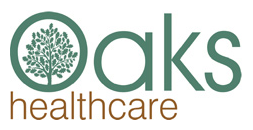Proxy Access – Acting on Behalf
Patients may wish to nominate an individual who may contact the Practice on their behalf to access their medical record, discuss their health or manage other aspects of their care within the Practice.
The Practice will accept verbal or written consent from a patient confirming the name, DOB, and relationship of the nominated individual, with specific instruction on access and time frame.
For example:
- “I would like my son, Joe Bloggs, 01 January 2001 to have access to request and discuss my blood test results.”
- “I would like my wife, Jill Bloggs, 02 February 2002, to have access to all aspects of my care and medical record and liaise with any Practice staff on my behalf”.
Proxy Access – Online Services
Proxy access was developed to allow someone other than the patient to access and manage parts of their GP online services account. The proxy is given their own online access account (rather than using the patient’s login details). It is often used by the parents or recognised carers of young children, and recognised carers of adults.
Patients can request a proxy is given access to:
- Online appointments booking.
- Online prescription management.
- Access the medical record.
To request proxy access, you can:
- Complete the proxy access form and return to the Practice either in-person of via hiowicb-his.oakshealthcare@nhs.net
- Collect a proxy access form from the Practice.
Proxy Access – Children and Young People
The practice may receive requests for proxy access to book appointments, order repeat.
prescriptions or access the online GP record on behalf of a child or young person. If the child does not have the capacity to consent to proxy access, the decision must be made by the practice based on what is thought to be in the child’s best interests.
Up until a child’s 11th birthday, the parents of the child will usually control access to their child’s record and GP Online Services. Access to the record should be switched off automatically when the child reaches the age of 11.
Parents/Guardians may continue to be allowed proxy access to their child’s online services if written consent is provided using the above proxy form.
These guidelines are informed by the Royal College of Practitioners and NHS England.

